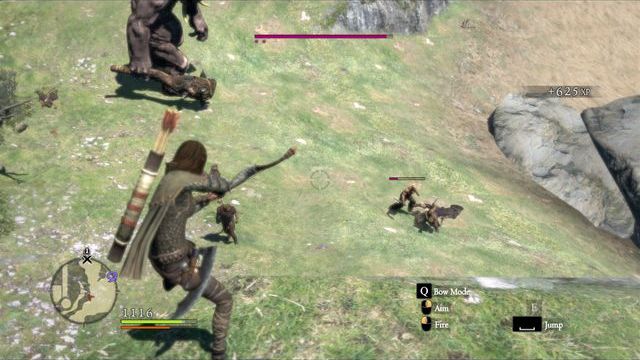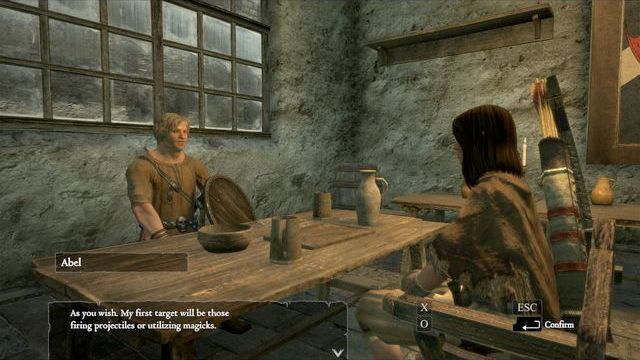Dragons Dogma Dark Arisen: Pawn strategy

Each one of the pawns comes with his own full characteristics, just like the main hero, i.e. they have their own health and endurance, the amount they can carry, they use weapons, armors and other items from the equipment and also have their own skill trees. Also, they have specializations and this can be modified while you stay at the inn (available only for the main pawn). What needs to be known at the very beginning: each of the pawns that you recruit has their own specialization, attributes and equipment. You cannot affect their parameters nor behavior, but you can equip them with better items. However, it is impossible to retrieve them later on, which is why you need to consider whether giving the pawn an item to use will pay off, and whether you are going to replace them in the near future or not.
It is a good idea to have a diversified party. You can do with, at least, one archer/battle mage, for getting down enemies on the ground. Also, just as important, in the tank who is a well armored fighter with a shield, who always heads the attack and drags enemies away from the rest of the party. Also, you need to remember about support - a mage that can cast buffing spells on the rest of the party is practically necessary for each party. You can select the rest of the party member, if you want to travel with a larger party, according to what you need, but it is recommended that that you have, at least, one unit representing each base specialization (or derived from one).
You can control your pawns and it is a simple control in combat. There are three keys available: move forward, call back to you and call for help. It is a good thing to learn this for better exploitation of your strategy in battle, but it is optional - the pawn AI is quite high.

One of the pawns - the one that you created - is different from the rest. You can give them equipment and you can take it back, you can modify their statistics and specialization in the inn and you can adjust their behavior in combat, which is enacted automatically. You do this to prevent a situation, in which, e.g. the experienced archer heads into a short-range battle. You can do this by sitting on the chair in the inn. This activates the mode, in which you can talk to the pawn and modify their behavior. The course of this is simple: the pawn asks questions concerning their behavior in a given situation, whereas you answer by picking one of the options.
You are not permitted to copy any image, text or info from this page. This site is not associated with and/or endorsed by the developers and the publishers. All logos and images are copyrighted by their respective owners.
Copyright © 2000 - 2025 Webedia Polska SA for gamepressure.com, unofficial game guides, walkthroughs, secrets, game tips, maps & strategies for top games.
